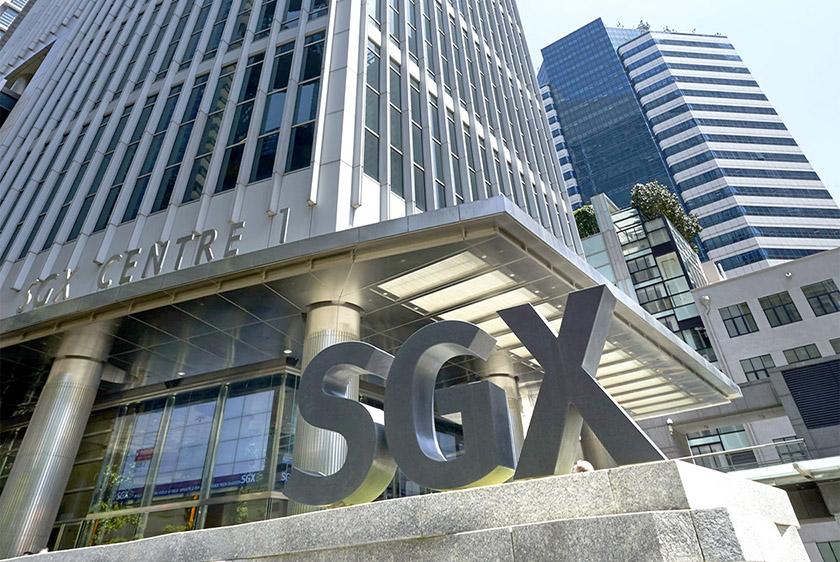
SGX urged to relook rules allowing Mainboard companies to transfer to Catalist
Increased transfers to Catalist could harm the liquidity and valuation of firms already listed on the board.
The Singapore Exchange (SGX) has been urged to consider disallowing companies from transferring from the Mainboard to Catalist and maintain direct oversight for those who are allowed to on an exceptional basis, according to corporate governance advocate Mak Yuen Teen and NUS final year accountancy honours student Mark Lai.
In their report titled ‘Where to, Catalist?’, the pair highlighted that a total of 24 Mainboard-listed companies which includes Allied Technologies, Olive Tree Estates and Silkroad Nickel have transferred to Catalist since 2014 to-date amidst SGX’s moves to clarify and tighten the criteria for such transfers. This is in comparison to the 21 Catalist issuers who transferred to the Mainboard since 2008.
Also read: SGX to launch new securities settlement and depository system
“On average the transferring companies had poorer corporate governance than other Mainboard and Catalist companies, lower profitability than other Mainboard companies, and lower growth potential than other Mainboard and Catalist companies,” Teen and Lai noted in the report regarding the characteristics of firms successful in transferring to Catalist. 17 of the firms were local companies, whilst six were found to have Ernst & Young (EY) as an external auditor.
A total of five firms on the other hand, were not successful in transferring from the Mainboard between 2015 and 20918. They revealed that another five Mainboard issuers have already applied to transfer to Catalist, although these have not been evaluated yet.
Additionally, the report noted that eight of the 24 companies which transferred to Catalist were already on the Watch-list based on the Financial Entry Criteria and/or Minimum Trading Price (MTP) Criteria at the time of transfer. The Watch-list was introduced by SGX in March 2008 in an effort to to improve the overall quality of listed companies in Singapore, and promote investor confidence of the marketplace. Mainboard companies that are on the Watch-list have 36 months to exit it, with the option of an extension by SGX if they are unable to within the given time frame.
Also read: SGX RegCo proposes delisting rule changes to boost minority shareholders
“The goal of Catalist being a ‘stepping stone’ to the Mainboard has arguably not been realised,” they said in the report. “Avoiding the Watch-list was the clearest benefit to the companies that transferred to the Catalist.”
Whilst listing on the Mainboard possesses a level of prestige and warrants greater institutional investor interest, Catalist’s less stringent requirements remains attractive for firms looking to either grow or stop itself from drowning amongst its Mainboard competitors on the back of poor profitability or low share prices .
For listings on Catalist, the admission requirements are less demanding and the process faster with the SGX less involved in the vetting of applications, the report revealed. Additionally, the initial and annual listing fees are lower which may help offset the cost of continuing as a sponsor, whilst the absence of a Watch-list and general share issue mandate amongst other lss stringent rules provides more flexibility and reduces the risk of delisting.
Also read: SGX cautions on what to observe when conducting share buy-backs
“Eight companies benefited from not having to seek shareholder approval for major transactions that exceeded the thresholds in the Mainboard rules following their transfer, whilst two companies made pro-rata issues of shares that exceeded the 50% limit under the Mainboard rules,” the pair further revealed.
An approximate 11% of all Catalist listings to date are companies that have moved down from the Mainboard.
“Over time, these developments may have a debilitating effect on the overall quality of Catalist and harm liquidity and valuations of companies listed on it,” Teen and Lai said. “In the longer term, this may also make the Catalist board unattractive for genuine growth companies.”
They also argued that giving struggling companies with poorer corporate governance access to Catalist’s more liberal rules could be potentially harmful to shareholders.
That being said, the study highlighted that the profitability, share price and share liquidity of companies that transferred most often than not worsened.
“12 of the 23 transferring companies have seen their average net income worsen,” the report added. “Also, 15 companies experienced a fall in their share price following their transfer to Catalist, whilst the share liquidity of 16 companies also worsened.”
The pair therefore concluded that transferring to Catalist does not generally help the companies or its shareholders.
























 Advertise
Advertise









